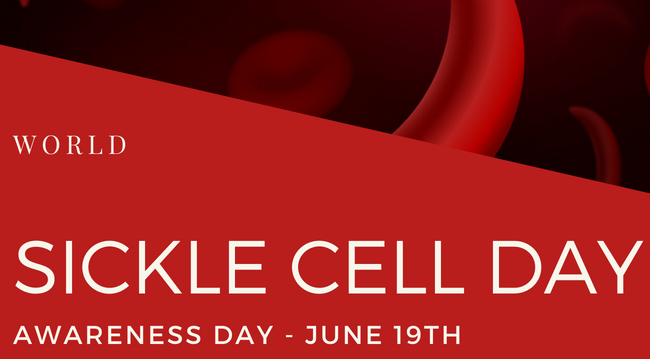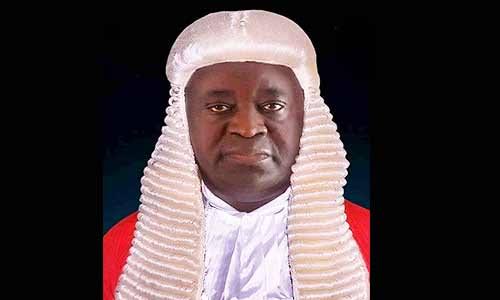June 19, is commemorated every year as World Sickle Cell Day, WSCD. It is a day specially designated to help increase public knowledge and raise awareness of blood diseases and the struggles that those living with the disease, their families and caregivers go through.
The theme for this year’s World Sickle Cell Day is “Sickle Cell Community Embracing Change Together.”
As part of its activities to mark the Day, a Non Governmental Organization, NGO, Lobi Community Dialogue Initiative, LCDI, held a one day community sensitization programme themed: “Is Sickle Cell Aneamia Curable?”
The programme was held in conjunction with some medical doctors; a Consultant hematologist from the Benue state University Teaching Hospital, BSUTH, Dr. Michael Onoja, a Professor of Law, Prof. Peter Ocheme among others, under the chairmanship of Benue state First lady, Dr. Eunice Ortom.
The aim of the programme was to reach out to members of the public on issues surrounding SCD.
Speaking during the event, one of the resource persons, Dr Onoja described Sickle Cell Disease, (SCD), as a disease of the blood which reduces the oxygen carrying capacity of the blood, thereby reducing the amount of oxygen taken to the organs and tissues of the body and lastly causing severe injuries to those organs and pains to sufferers.
He said the disease was curable: “But the only cure for SCD is bone marrow transplantation. “It is not what an ordinary person can afford. It is quite expensive and not easily obtainable in Nigeria.”
He explained that very few hospitals carry out the transplant in Nigeria due to dearth of specialists and facilities and called on governments for more funding in the area to assist carriers get succour.
According to World Health Organization, WHO, SCD is the sixth commonest cause of death among Nigerian children. In 2006, WHO declared SCD as a problem of major public health importance and a serious burden that must be addressed.
“In Nigeria, where it affects 2 out of every 100 children born, over 150,000 babies are born every year in Nigeria with sickle cell disorder (as against 2,000 in the USA) while 25-30% (40 million) Nigerians are healthy carriers of the sickle cell gene (as against 3 million in the US).
“SCD affects 2% to 3% of the Nigerian population (4,000,000) Nigerians are living with it ( as against 100,000 persons living with sickle cell anaemia in the US),” WHO said.
Onoja noted with displeasure that the above figures make Nigeria by far the country with the highest burden of sickle cell disorder in the whole world; yet little attention is paid to the condition by governments at all levels.
He therefore called for more awareness campaign and sensitization on the dangers of sickle – cell aneamia/disease in the country advising that the awareness must be taken to the rural communities where majority of the populations barely know the consequences of their actions.
Another resource person, Professor Peter Ocheme who spoke on “Sickle Cell Anaemia Prevention, noted that SCD was responsible for high mortality rates, especially for children under five years of age.
Ocheme, who spoke through Mr. John Emakwu, said the condition also presented significant economic challenges in managing SCD sufferers.
“The costs of looking after a child with SCD as well as the financial resources involved are substantial considering the already existing poverty status of most SCD sufferers and their parents or guardians in Nigeria. Furthermore, SCD presents significant physical, psychological, and social challenges to both parents and sufferers.
He noted that though the treatment of SCD had improved in recent years, and bone marrow (stem cell) transplantation known to achieve cure, the cost implication for the patient to get the treatment, the risks involved and the infrastructural inadequacies hinder the adoption of such treatment in Nigeria.
READ ALSO: Researchers Develop New Method to Rapidly, Reliably Monitor Sickle Cell Disease
He lamented that despite government’s intensified efforts to reduce the prevalence of the disease through various epidemiological interventions such as the introduction of genetic counseling clinics and prenatal screening, awareness of SCD remained low in Nigeria, especially among the reproductive age group as only a small number of Nigerian couples attend these clinics for screening and counseling.
He therefore, suggested that prevention of SCD could be achieved through premarital genotype screening/testing, genetic counseling, awareness creation-inclusion in secondary/tertiary school curriculum, NYSC Orientation awareness of SCD, robust partnership between healthcare professionals and opinion leaders, spirited individuals, faith-based organizations and the political class.
He said the prevention of SCD was possible if two carriers are encouraged not to marry or to have children.
“There is a need for massive education of Nigerians to enhance knowledge of the population on the importance of voluntary counseling and testing of sickle cell traits as a means of reducing future occurrence of the disease in children.
“Premarital counseling and genetic testing as epidemiological intervention of SCD can be enhanced through the efforts of opinion leaders, spirited individuals, religious leaders, and political class who wield tremendous power among the people, massive awareness and education drives with involvement of the media, community leaders, committed advocates from the political class, sports and other celebrities, and key players in the private sector, awareness campaign at various NYSC orientation camps about SCD during camping exercise.”
This should be on an on-going basis in each state of the federation.
“Learning about SCD should be incorporated into the primary, secondary and tertiary institutions’ curriculum,” he added.
The Professor, also said government can make it mandatory for prospective couples to present their genotype certificates prior to wedding authorization in any government approved institutions or registries as well as facilitate the registration of “Sickle Cell Disease Association of Nigeria” to give a sense of belonging to sufferers.
Some guest and participants observed that there should be legislation to compel churches, mosques, parents, intending couples to carry out genotype tests before marriage to help reduce the prevalence.
Also speaking, an SS carrier and a lawyer, Paschal Idoko thanked the convener, Mr. Abel Ochai for spreading awareness and sensitizing community people about the disease.
He noted that a lot of people married their partners ignorant of their status. “Whatever the situation, do not despair or be hopeless. Having the disease is not a death sentence. You need to love and care for the children that God has given to you and if God has kept me over 50 years of age and exempted me from suffering the crisis, it is possible He will cure your children,” he admonished parents with children suffering from the disease.
He however, warned intending couple not to take appropriate steps to check themselves properly before getting married. “I advise that people should not faith it. If the doctors have checked you and say that you and this person can not marry, there is no need to take the risks by getting married.
The convener, Mr. Abel Augustine Ochai thanked the resource persons and participants for coming out to show concerns. He urged them to take the messages to their various communities for a sickle cell disease free society.
“There is no need having children that you will have sickle cell disease. There is no need to bring children into this world that are coming to suffer unnecessarily and you the parent frustrated and miserable.
He therefore advice all and sundry to carry out their genotype before going wedding saying this is the only sure way of avoiding social psychological trauma of raising children who sickle sufferers.











